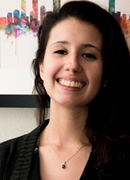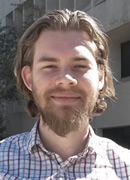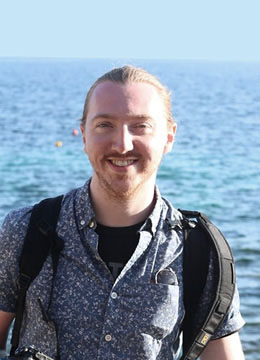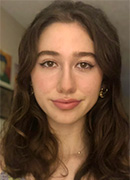Research Team
Principal Investigator
Alice O’Toole, PhD

Prof. Alice O’Toole is a professor in the School of Behavioral and Brain Sciences at The University of Texas at Dallas and currently holds the Aage and Margareta Møller Endowed Chair.
Her research interests include human perception, memory, and cognition, with an emphasis on computational approaches to modeling the perception of faces, bodies, and people. The goal of these efforts is to understand how high level visual representations encode identity information from in-the-wild images of people. Her work incorporates modeling of visual representations of faces and bodies using deep neural networks and machine learning. Current projects in her lab include comparisons between human and machine-based face recognition, the analysis of face and body recognition algorithms, person recognition from face and body, and modeling the relation between language and human body shapes.
View Dr. O’Toole’s Curriculum Vitae on her UT Dallas profile page.
Post-doctoral Researchers
GÉRALDINE JECKELN, Ph.D. (Post-doctoral Researcher)

Géraldine joined the cognition and neuroscience doctoral program in 2019. She obtained her Ph.D. in cognition and neuroscience from The University of Texas at Dallas (2024), and a BA in honors psychology from Concordia University (2015). Presently, her research focuses on the relationship between confidence judgments and face-identification performance. She is also involved in a project designing assessment tools for forensic face identification. Other research interests include wisdom-of-crowds effects and models of collaborative decision-making.
Publications:
Jeckeln, G., Yavuzcan, S., Marquis, K. A., Mehta, P. S., Yates, A. N., Phillips, P. N., O’Toole, A. J. (2024). Designing cross-race tests for forensic facial examiners, super-recognizers, and face recognition algorithms. Proceedings of the IEEE International Conference on Face and Gesture Recognition.
Jeckeln, G., Hu, Y., Cavazos, J.G. et al. (2023) Face identification proficiency test designed using item response theory. Behavior Research Methods. https://doi.org/10.3758/s13428-023-02092-7
Jeckeln, G., Mamassian, P., & O’Toole, A. J. (2022). Confidence judgments are associated with face identification accuracy: Findings from a confidence forced-choice task. Behavior Research Methods, 1-10.
Cavazos, J. G., Jeckeln, G., & O’Toole, A. J. (2018). Collaboration to improve cross-race face recognition: Wisdom of the multi-racial crowd? British Journal of Psychology.
Phillips, P.J., Yates, A.N., Hu, Y., Hahn, C.A., Noyes, E., Jackson, K., Cavazos, J.G., Jeckeln, G., Ranjan, R., Sankaranarayanan, S., Chen, J-C., Castillo, C.D., Chellappa, R., White, D., & O’Toole, A.J. (2018). Face recognition accuracy of forensic examiners, superrecognizers, and face recognition algorithms. Proceedings of the National Academy of Sciences. doi:10.1073/pnas.1721355115.
Jeckeln, G., Hahn, C.A., Noyes, E., Cavazos, J.G., & O’Toole, A. J. (2018). Wisdom of the social versus non-social crowd for face identification. British Journal of Psychology, 109 (4), 724-735. doi:10.1111/bjop.12291.
MATTHEW Q. HILL, Ph.D. (Post-doctoral Researcher)

Matt is a PhD post-doctoral researcher interested in the relationship between human cognition and machine learning. His current work evaluates deep neural networks trained for face and/or body identification in order to better understand how they encode information about identity, as well as variables like viewpoint and illumination. His previous work investigated the relationship between human body shapes and the language used to describe them by systematically linking 3D body scans with verbal body descriptions.
Publications:
Parde, C. J., Colón, Y. I., Hill, M. Q., Castillo, C. D., Dhar, P., & O’Toole, A. J. (2021). Closing the gap between single-unit and neural population codes: Insights from deep learning in face recognition. Journal of Vision, 21(8), 15-15.
Noyes, E., Parde, C. J., Colón, Y. I., Hill, M. Q., Castillo, C. D., Jenkins, R., & O’Toole, A. J. (2021). Seeing through disguise: Getting to know you with a deep convolutional neural network. Cognition, 211, 104611.
Noyes, E., & Hill, M. Q. (2021). Automatic recognition systems and human computer interaction in face matching. Forensic face matching: Research and Practice, 193-215.
Hu, Y., Huang, V., Hill, M. Q., & O’Toole, A. J. (2020). Linking language descriptions and social trait perception of three-dimensional body shapes. Journal of Vision, 20(11), 581-581.
Hill, M. Q., Parde, C. J., Castillo, C. D., Colon, Y. I., Ranjan, R., Chen, J. C., Blanz, V., & O’Toole, A. J. (2019). Deep convolutional neural networks in the face of caricature. Nature Machine Intelligence, 1(11), 522-529.
O’Toole, A. J., Castillo, C. D., Parde, C. J., Hill, M. Q., & Chellappa, R. (2018). Face space representations in deep convolutional neural networks. Trends in cognitive sciences, 22(9), 794-809.
Parde, C. J., Castillo, C., Hill, M. Q., Colon, Y. I., Sankaranarayanan, S., Chen, J. C., & O’Toole, A. J. (2017). Face and image representation in deep cnn features. In 2017 12th IEEE International Conference on Automatic Face & Gesture Recognition (FG 2017) (pp. 673-680). IEEE.
Hill, M. Q., Streuber, S., Hahn, C. A., Black, M. J., & O’Toole, A. J. (2016). Creating Body Shapes From Verbal Descriptions by Linking Similarity Spaces. Psychological Science, 27(11), 1486-1497.
BLAKE MYERS, Ph.D. (Post-doctoral Researcher)

Blake holds a Ph.D. in Philosophy from the University of Wisconsin – Madison. His current research focuses on deep learning approaches to person identification using body shape features. He contributes to projects examining how different neural network architectures—including ResNets and Vision Transformers—can recognize individuals across varying distances and viewpoints. His work involves the development and analysis of multiple recognition systems including both linguistic-based and object-based visual architectures for body shape recognition.
Publications:
Myers, B., Jaggernauth, L., Metz, T.M., Hill, M.Q., Gandi, V.N., Castillo, C.D. & O’Toole, A.J. (2023). Recognizing people by body shape using deep networks of images and words. IEEE International Joint Conference on Biometrics (IJCB), 1-8.
Myers, B. (2019). A paradox involving representational states and activities. Thought, 8, 96-100.
Myers-Schulz, B., Pujara, M., Wolf, R., & Koenigs, M. (2013). Inherent emotional quality of human speech sounds. Cognition and Emotion, 27, 1105-1113.
Myers-Schulz, B., & Schwitzgebel, E. (2013). Knowing that P without believing that P. Noûs, 47, 371-384.
Myers-Schulz, B., & Koenigs, M. (2012). Functional anatomy of ventromedial prefrontal cortex: Implications for mood and anxiety disorders. Molecular Psychiatry, 17, 132-141.
Graduate Students
Archana Pandurangan, MS (Doctoral student)

Archana is a doctoral student in the Cognition and Neuroscience program. She earned her MS in Experimental Psychology from Rochester Institute of Technology (RIT) and her BS with Honors in Psychology from the University of Nottingham Malaysia. Her research interests include exploring individual differences in face perception and examining the effects of own-race bias in face recognition. Archana is also involved in a project focused on designing assessment tools for forensic face identification.
VEDA NANDAN GANDI (MS, 2023) (RESEARCH ASSISTANT)

Veda is a computer science major with a specialization in intelligent systems and earned his master’s degree from The University of Texas at Dallas in 2023. Since joining the Face Perception Lab in 2022, he has focused on developing end-to-end computer vision models using ResNets and Vision Transformers, as well as processing and analyzing video datasets. As a research assistant, his current work involves researching advanced deep neural network architectures for identification tasks and implementing state-of-the-art body recognition models for the BRIAR project.
Publications:
Myers, B., Jaggernauth, L., Metz, T.M., Hill, M.Q., Gandi, V.N., Castillo, C.D. & O’Toole, A.J. (2023). Recognizing people by body shape using deep networks of images and words. IEEE International Joint Conference on Biometrics (IJCB), 1-8.
Thomas Metz (BS, 2024)
Thomas is pursuing his master’s in Statistics with a specialization in Data Science at the University of Texas at Dallas. He expects to graduate in 2025. Since joining the lab in 2022, his work has focused on the development of computer vision models, collection of datasets, and understanding of deep learning models. After completing his master’s degree, Thomas hopes to pursue a Ph.D. His research interests include understanding how deep learning models learn and the principles that guide how DNNs represent information.
Publications:
Myers, B., Jaggernauth, L., Metz, T.M., Hill, M.Q., Gandi, V.N., Castillo, C.D. & O’Toole, A.J. (2023). Recognizing people by body shape using deep networks of images and words. IEEE International Joint Conference on Biometrics (IJCB), 1-8.
Undergraduates
Rahul Chilakapati (BS, 2025) (Undergraduate Student)

Rahul is a senior double majoring in computer science and cognitive science at UTD. He has been a part of the lab since 2023 and currently aids in the STR BRIAR project focused on vision-based Re-ID. His research interests involve exploring the applications of deep learning models like ViT’s and CNN’s in detecting neurological disease. In the future, Rahul hopes to pursue a career in neurotechnology.
Lab Alumni (Recent)
GINNI STREHLE (MS, 2024) (Vanderbilt University – Graduate Student)

Ginni is a master’s student in the applied cognition and neuroscience program at UTD. Her current research interest is determining whether deep convolutional networks are sensitive to similar properties of faces as humans during face recognition. During her time at UTD, she has researched infant cognitive development with Dr. Melanie Spence and completed an undergraduate honors thesis titled “Deeper levels of processing improve recognition accuracy for inverted faces.”
Publications:
Strehle, V. E., Bendickson, N. & O’Toole, A. J. (2024). Deep convolutional neural networks are sensitive to face configuration. Journal of Vision. 24:6. doi:https://doi.org/10.1167/jov.24.12.6
Parde, C. J., Strehle, G., Banerjee, V., Hu, Y., Cavazos, J. G., Castillo, C. D., & O’Toole, A. J. (2022). Comparing Human and Deep Convolutional Neural Network Performance on Twin Identification. Journal of Vision, 22(14), 3357-3357.
Parde, C. J., Strehle, V. E., Banerjee, V., Hu, Y., Cavazos, J. G., Castillo, C. D., & O’Toole, A. J. (2022). Twin identification over viewpoint change: A deep convolutional neural network surpasses humans. arXiv preprint arXiv:2207.05316.
CONNOR PARDE (PhD, 2023)(Vanderbilt University – Post doctoral Researcher)

Connor is a PhD student in the cognition and neuroscience program. He is interested in face perception and computational modeling of human cognition. His current research focuses on analyzing the performance of face-identification algorithms across image variation, with emphasis on the nature of the face representation stored by the network. More generally, he is interested in category boundaries in learning networks and how different training approaches may effect these boundaries.
Publications:
Parde, C. J., Strehle, V. E., Banerjee, V., Hu, Y., Cavazos, J., Castillo, C. D., & O’Toole, A. J. (2023). Twin identification over viewpoint change: A deep convolutional neural network surpasses human. ACM Transactions on Applied Perception.
Hill, M. Q., Parde, C. J., Castillo, C. D., Colon, Y. I., Ranjan, R., Chen, J. C., … & O’Toole, A. J. (2019). Deep convolutional neural networks in the face of caricature. Nature Machine Intelligence, 1(11), 522-529.
Parde, C. J., Hu, Y., Castillo, C., Sankaranarayanan, S., & O’Toole, A. J. (2019). Social Trait Information in Deep Convolutional Neural Networks Trained for Face Identification. Cognitive science, 43(6), e12729.
Hu, Y., Parde, C. J., Hill, M. Q., Mahmood, N., & O’Toole, A. J. (2018). First impressions of personality traits from body shapes. Psychological Science, 29(12), 1969-1983
O’Toole, A. J., Castillo, C. D., Parde, C. J., Hill, M. Q., & Chellappa, R. (2018). Face space representations in deep convolutional neural networks. Trends in cognitive sciences, 22(9), 794-809.
Parde, C. J., Castillo, C., Hill, M. Q., Colon, Y. I., Sankaranarayanan, S., Chen, J. C., & O’Toole, A. J. (2017, May). Face and image representation in deep cnn features. In 2017 12th IEEE International Conference on Automatic Face & Gesture Recognition (FG 2017) (pp. 673-680). IEEE.
YING “NINA” HU (PhD, 2021) (Assistant Prof. at the Chinese Academy of Science)

Ying is interested in visual perception and social cognition. As part of her research, she explores how social traits are inferred from faces and bodies, with an emphasis on visual-social interfaces and culture differences. Additionally, she designs tests to assess face identification proficiency in challenging tasks and to understand individual differences.
Publications:
Ying Hu*, and Alice J. O’Toole (2022). First impressions: Integrating faces and bodies in personality trait perception. Cognition, 105309.
Ying Hu*, Asal Baragchizadeh, and Alice J. O’Toole (2020). Integrating faces and bodies: Psychological and neural perspectives on whole person perception. Neuroscience & Biobehavioral Reviews, 112, 472-486.
Ying Hu*, Connor J. Parde, Matthew Q. Hill, Naureen Mahmood, and Alice J. O’Toole (2018). First impressions of personality traits from body shapes. Psychological Science, 29 (12), 1969-1983.
Ying Hu*, Kelsey Jackson, Amy Yates, David White, P. Jonathon Phillips, and Alice J. O’Toole (2017). Person recognition: Qualitative differences in how forensic face examiners and untrained people rely on the face versus the body for identification. Visual Cognition, 25 (4-6), 492-506.
JACQUELINE G. CAVAZOS (PhD, 2020) (Post-doctoral fellow at UC Irvine)

Jackie is a PhD student in the psychological sciences program. She received a BA in psychology from California State University, Fullerton where she focused on examining the effects of disguise and race on face recognition. Her current research focuses on the effects of race bias in face recognition identification in humans and face recognition algorithms and the potential strategies to reduce this effect. Some of these strategies include image presentation type (contiguous and distributed learning) and collaborative decision-making strategies. As part of a larger team, Jackie also works to design proficiency tests to examine forensic face examiner accuracy in challenging tasks.
Publications:
Cavazos, J.G., Phillips, P.J., Castillo, C. D. & O’Toole, A. J. (2020). IEEE Transactions on Biometrics, Behavior, and Identity Science. Vision IEEE: Transactions on Biometrics, Behavior & Identity Science.
Cavazos, J.G., Noyes, E., O’Toole, A. J. (2018). Learning context and the Other-Race Effect: Strategies for improving face recognition. Vision Research. doi:10.1016/j.visres.2018.03.003.
Phillips, P.J., Yates, A.N., Hu, Y., Hahn, C.A., Noyes, E., Jackson, K., Cavazos, J.G., Jeckeln, G., Ranjan, R., Sankaranarayanan, S., Chen, J-C., Castillo, C.D., Chellappa, R., White, D., & O’Toole, A.J. (2018). Face recognition accuracy of forensic examiners, superrecognizers, and face recognition algorithms. Proceedings of the National Academy of Sciences. doi:10.1073/pnas.1721355115.
Jeckeln, G., Hahn, C.A., Noyes, E., Cavazos, J.G., & O’Toole, A. J. (2018). Wisdom of the social versus non-social crowd for face identification. British Journal of Psychology. doi:10.1111/bjop.12291.
Cavazos J. G., Jeckeln, G., Hu, Y., & O’Toole, A. J. (In Press). Strategies of face recognition by humans and machines. Deep Learning-based Face Analytics. Cambridge University Press.
ASAL BARAGCHIZADEH, MS, MPA (PhD, 2021) (Data Analyst in Industry)

Asal PhD, 2021 in the cognition and neuroscience program. She is currently working as a data analyst in industry. She received an MS in applied cognition and neuroscience from The University of Texas at Dallas, MPA from Northeastern University, and a double-major BS in biomedical and electrical engineering from Tehran Science and Research University in Iran. Currently, her primary interest is in-person identification from biological motion and its neural correlates. More specifically, using fMRI-adaptation she is studying the discriminability of neural activity patterns elicited in response to identity and actions in selected ROIs and whole brain. Previously, she worked on a project to evaluate Automated Identity Masking (AIM) algorithms in Naturalistic Driving Study (NDS) videos. As a side research project, she has helped a team of researchers at the US Army Graduate Program in Anesthesia Nursing, JBSA-FSH, San Antonio TX to study the effects of tibial and humerus intraosseous administration of epinephrine in a cardiac arrest swine model.
Publications:
Asal Baragchizadeh, Thomas Karnowski, David Blome, & Alice O’Toole (2017). Evaluation of the Automated Identity Masking Method (AIM) in Naturalistic Driving Study (NDS). Twelfth IEEE International Conference on Automatic Face and Gesture Recognition.
Beaumont, D., Baragchizadeh, A., Johnson, C., & Johnson, D. (2017). Effects of tibial and humerus intraosseous administration of epinephrine in a cardiac arrest swine model. American Journal of Disaster Medicine, 11(4), 243-251.
NATALIE BENDIKSEN (Research Assistant)

Natalie is a psychology major and works in the lab as a research assistant. She has been in the lab since 2022 and is currently assisting on two projects studying deep convolutional neural networks, face perception, and body perception. In the past, Natalie has worked in the Close Relationships and Health Lab as a research assistant studying family relationships and sleep. In the future, Natalie plans to pursue a career in clinical psychology.
LUCAS JAGGERNAUTH (B.S., 2023) (now in industry: Co-founder Speck (YC W24) | Ex-Roblox)

Lucas is a computer science and cognitive science double major with a focus on machine learning. He has been involved in the STR BRIAR project, where he worked on optimizing code execution and model training. His main interests are in computer vision and natural language processing, and he has trained models using state-of-the-art techniques TripletLoss and BarlowTwins. In the future, Lucas plans to pursue a career in machine learning, where he can continue to develop and apply cutting-edge algorithms to solve complex problems.
Accomplishments: State-of-the-art results using online mining with TripletLoss and multi-task learning, resulting in the 2nd best performance on body identification within the BRIAR project.
KATE ASHLEY MARQUIS (B.S., 2022)(heading to graduate school 2024)

Kate is a recent graduate of The University of Texas at Dallas with a BS in psychology with specialization in criminology and forensics. Their research interests center around intersectionality and the impacts of culture, race and religion on psychological and criminal justice theories. They are currently working on a study to assess racial bias (Other-Race Effect) in forensic examiners and deep convolutional neural networks. They plan on pursing a PhD in clinical forensic psychology and a career in trial consulting in the future.
SELIN YAVUZCAN (B.S., 2022)(Grad student: Donders Institute, University of Radboud, Netherlands)

Selin recently graduated with a bachelor of science in psychology and works in the lab as a research assistant. She has been a part of the lab since 2021 and is currently working on a project in collaboration with NIST aimed at creating a difficult facial examination test for forensic experts to investigate performance and the other race effect. Her interests lie primarily in developmental psychopathology and she will be pursuing her MS in behavioral science research. In the future, Selin plans on pursuing a career in clinical psychology.
SNIPTA MALLCIK, (B.S., 2023) NIH

Snipta is a junior at The University of Texas at Dallas double majoring in computer and cognitive science. Her research initiatives are centered on the analysis of facial recognition algorithms with a focus on using Deep Convolutional Neural Networks (D-CNNs) to detect face-morph Presentation Attacks (PAs). She is interested in working at the intersection of healthcare and artificial intelligence and will be pursuing an MD after graduation.
YOLANDA IVETTE COLON (current doctoral student at the University of Wisconsin)

Ivette spent 4 years in the O’Toole Lab studying on deep convolutional neural networks for face recognition. She is now a PhD student at the University of Wisconsin- Madison, working under Dr. Emily Ward.
Lab Alumni and Current Collaborators
EILIDH NOYES (Lecturer at University of Leeds, UK)

Eilidh was a post-doctoral fellow in the lab between 2014-2016) She is currently a lecturer at the University of Huddersfield in the UK.
Publication List on Google Scholar
CARINA A. HAHN (PhD 2012) (Research Scientist at NIST)

Carina is a scientist at the National Institute of Standards and Technology. See https://sites.google.com/view/carinahahn.
FANG JIANG, PhD
Associate Professor at U Nevada at Reno (See bio)
VAIDEHI NATU, PhD
Post-doctoral Fellow at Stanford (See bio)
DANA ROARK, PhD
Instructor in BBS at UT Dallas
